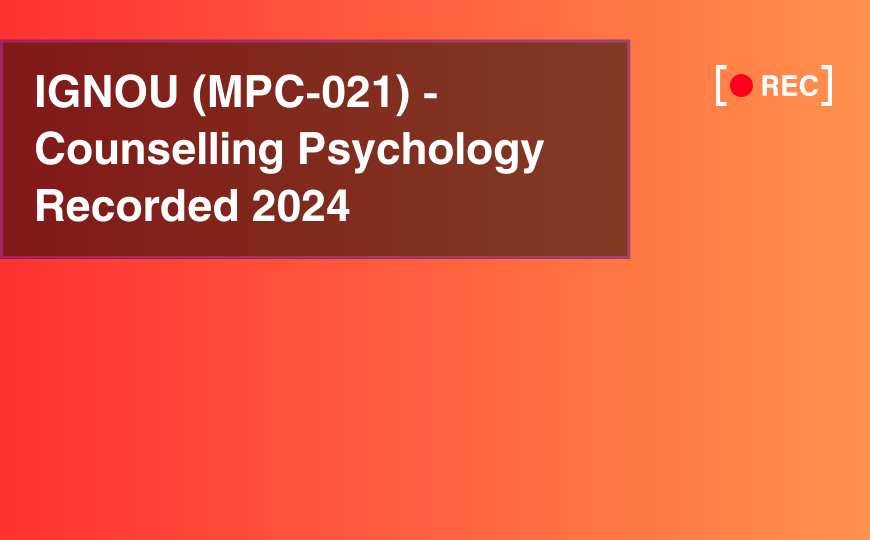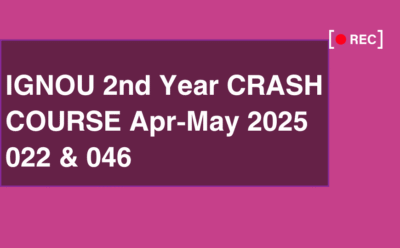Get Good Marks in your MA Psychology Programme in the Term-End Exams even if you are busy in your job or profession.
Requirements
-
An open mind and readiness to learn new ways of thinking are both recommended
-
No prior knowledge is required
-
Just any computer with internet access and a desire to learn
-
There’s NO paid software or tools that you’re required to buy in the course
IGNOU MPC-021 Topics Covered
Block 1 – Introduction
- Unit 1 – Introduction to Counseling and Characteristics of a Counselor
- Unit 2 – Process of Counseling
- Unit 3 – Theoretical Approaches to Counseling
- Unit 4 – Ethics in Counseling
Block 2 – Counselling: Models and Approaches
- Unit 1 – Psychoanalysis, Psychodynamic and Psychotherapy
- Unit 2 – Behavioural Therapy, Cognitive Behaviour Therapy and Approaches to Counselling
- Unit 3 – Drama and Art Therapy in Counselling
- Unit 4 – Other Therapies (Persons Center Counselling and Solution Focus Counselling)
Block 3 – Types of Counselling
- Unit 1 – HIV/AIDS Counselling
- Unit 2 – Educational and Vocational Counselling
- Unit 3 – Child Protection and Child Rights Counselling
- Unit 4 – Addiction/Anxiety Counselling
Block 4 – Counselling for Mental Disorders
- Unit 1 – Depression
- Unit 2 – Personality Disorder
- Unit 3 – Gender Identity Disorder
- Unit 4 – Eating Disorder
Course Features
- Lectures 17
- Quizzes 0
- Duration Lifetime access
- Skill level All levels
- Language English
- Students 5
- Assessments Yes
Curriculum
- 1 Section
- 17 Lessons
- Lifetime
Expand all sectionsCollapse all sections
- VIDEOS17
- 1.0Introduction to Counselling
- 1.1Process of Counselling
- 1.2Behaviour and Cognitive Therapy
- 1.3Psychoanalysis, Psychodynamics and Psychotherapy
- 1.4Educational and Vocational Counseling
- 1.5Person Centered and Solution Focussed Counseling Part 1
- 1.6Person Centered and Solution Focussed Counseling Part 2
- 1.7HIV/AIDS Counselling
- 1.8Drama and Art Therapy
- 1.9Ethics in Counseling
- 1.10Depression
- 1.11Child Rights and Protection
- 1.12Anxiety and Addiction
- 1.13Theoretical Approaches to Counseling
- 1.14Personality Disorders
- 1.15Gender Identity Disorders
- 1.16Eating Disorders







